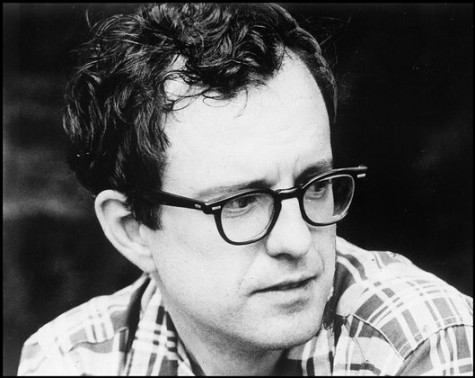
Wilfrid Sheed, who died Wednesday morning at the age of eighty, may have been the most naturally gifted writer who ever wrote regularly for Commonweal. At Slate, Timothy Noah claims that Sheed “possessed the most captivating writing style of any journalist writing in the 1960s, 1970s, and 1980s, and that includes Mailer, Wolfe, Talese, and various other dandies of the New Journalism.”
The son of Frank Sheed and Maisie Ward, the godson of G.K. Chesterton, Sheed probably could have written some interesting books even if he hadn’t been a great writer: he had so many stories to tell, so many charismatic friends and acquaintances. But because he was so talented, he could turn even the most unpromising subject—a dull play or book, an editorial meeting—into great journalism. Among his many gifts as a writer was his versatility: Sheed did all the voices, and did them well. As a memoirist and moralist (for him the two often went together), he could write with eloquent simplicity, as in this piece about growing up Catholic before Vatican II and hanging on to one’s faith afterward. Writing as a satirist, Sheed could be deadly funny and deadly serious at the same time, as in this guide to hatchet jobs. He wrote more than a few of those himself, including a famous takedown of Norman Podhoretz’s infamous memoir, Making It. (Many years later Podhoretz refused to shake Sheed’s hand because of that review.) But Sheed also knew how to bury his hatchet in a bad book while somehow managing not only to leave the author intact but also to defend him against his less scrupulous critics, as in this characteristically nuanced review of Edmund Wilson’s The Cold War & the Income Tax.
[Wilson’s] prose (possibly the best non-fiction American prose since Thoreau) has become rather shapeless, possibly even careless. The tone is that of a man who doesnt expect to be contradicted; he addresses his subject as if it had never been discussed before and will never need to be discussed again. There is no suggestion here of failing powers, only of failing intensity and concentration, like a Yankee after his twelfth pennant.
Sheed knew, as Wilson did, that it was silly to judge an important writer by his worst work, or to refrain from criticizing bad work because it was written by an important writer. More than that, Sheed had an eye for the essential quality—the ground note audible in all a writer’s work, both the good and the bad (cf. his discussion of Hemingway here and his essay about William F. Buckley, Jr. here). Sheed’s most famous quality was his wit, which was dry, quick, and ruthless. I won’t spoil his reply to an angry letter from Michael Novak in the NYRB (you can read the exchange here—and you should). Suffice it to say Sheed knew how to follow some of the advice he gave in that essay about hatchet jobs:
Since the last thing a hatchetman wants is sympathy, the thing to aim at is a hair-line cut, almost invisible until the victim moves and his head topples off. An angry letter from him is equivalent (change metaphors there) to the death lunge of the brave bull. Three or four lines in riposte will sever his aorta for good.
By 1974 he had it down to four or five words. Sheed and his wit were usually on the side of the underdog. He was a man of great sympathies, as well as great loyalties—to people and to institutions. He asked thata Latin Mass be said at his funeral, and he wanted his headstone to read, “He wrote a few good sentences.” Bless him, he wrote no bad ones. Requiescat in pace.
